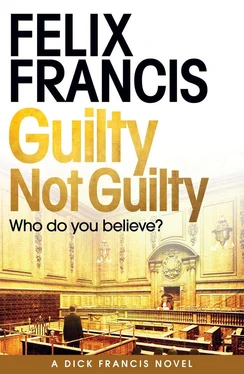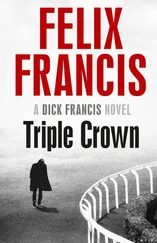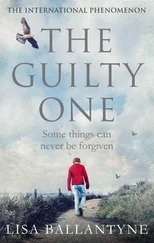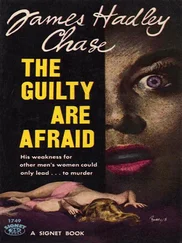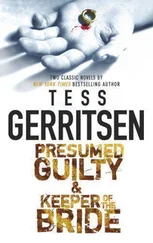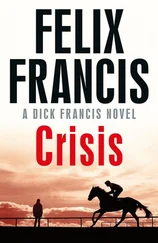I had cried myself to sleep and then, to compound my suffering, I had dreamed about her murder, reliving the horrors that must have occurred in our kitchen on that awful morning.
I woke suddenly, in a cold sweat, and then I cried some more, so much so that I ended up with a thumping headache.
I got up and went to the medicine cabinet in the bathroom looking for some painkillers and, after much rummaging among tubes of foot cream, sticky plasters, eye makeup removal pads and numerous other bits and bobs, I found a bubble pack of paracetamol at the back with a couple of pills still left in it.
I swallowed them.
Having a supply of painkillers in the house had always been an area of contention between Amelia and myself, and I had finally tried to lay down the law by banning her from buying them.
I had not taken that step without good reason.
Twice she had tried to do herself harm by swallowing handfuls of pills and, thankfully, the only ones she could find at the time were her own anti-depressants and my statins, neither of which did her any permanent damage.
I thought about going back to bed but it was already getting light and I didn’t want a repeat performance of the nightmare. So I had a shower, got dressed and went downstairs.
I then spent some time searching through the Queen Anne kneehole desk in the sitting room, which Amelia had used to store all her papers. I was looking for something specific and I found it at the back of the second drawer down on the left-hand side — information concerning the sale of her parents’ Weybridge home.
There was a copy of a letter sent to Mary from the lawyer that Joe had engaged, together with the final statement of price and fees, both theirs and those of the estate agent.
The original listing had been at £3.2million but the final agreed purchase price, as I’d remembered, had been a hundred thousand less than that. The letter further stated that that amount had been paid to Mary Bradbury’s bank account, minus the combined fees and disbursement charges of almost fifty thousand pounds.
I sat for a while memorising the figures and then, with my headache now fading away, I backed Amelia’s Fiat out of the driveway and set off to Mary’s cottage.
She had moved to a village near Chipping Norton, twenty-five minutes drive from us. ‘Close but not too close,’ she’d said at the time. ‘Otherwise neither of us will get any privacy.’
It had been an excellent choice with good friends made among her new neighbours.
I parked on the driveway and rang the doorbell, hoping that she wasn’t still in bed. She wasn’t. The door slowly opened.
I hadn’t seen her for some time, as I had decided that it was better to keep away rather than antagonise Joe, so I was shocked by her appearance. She had clearly aged considerably and her skin had a touch of yellow about it from jaundice, no doubt brought on by the cancer in her pancreas, or its treatment.
‘Hello, Mary,’ I said.
‘What do you want?’ she asked in an unfriendly tone. ‘You should be in prison.’
‘I didn’t kill your daughter,’ I said. ‘I loved her.’
I could tell that she didn’t believe me.
‘Can I come in?’
‘What for? To kill me as well?’
‘Don’t be silly,’ I said. ‘I loved Amelia with all my heart. I would never have hurt a single hair on her head and, if you think hard enough, you would realise that.’
‘But Joe says...’
‘Joe is lying to you,’ I said.
‘Why would he?’
It was a good question.
She was confused and I waited in silence. Eventually she stepped to one side to let me in.
‘Do you want a coffee?’ she asked.
‘Yes, please. That would be lovely.’
We went through to her kitchen and she put the kettle on to boil.
‘How are you?’ I asked tentatively.
‘Don’t ask,’ she said, throwing her hands up. ‘The doctors have told me I should have three months but I feel so weak right now that I think it could be just three days.’
‘I’m so sorry.’
‘Comes to all of us in the end, I suppose. Always too soon.’
It certainly was for Amelia.
‘I hear you had some friends from Weybridge come to see you,’ I said, getting straight to the point of my visit. ‘That was nice.’
‘Jim and Gladys,’ she agreed, nodding. ‘They lived next door to Reg and me for nearly thirty years. They’re a lovely couple. Our best friends.’
‘Have I ever met them?’ I asked.
‘You may have. I’m sure they would have been invited to your wedding up in Wales. But maybe they didn’t come. I can’t really remember. Don’t seem to remember much these days.’
‘What’s their surname?’ I asked.
‘Wilson,’ she said, remembering that with ease. ‘Jim and Gladys Wilson. He was a stockbroker, same as Reg. But he’s been retired a long time now.’
Mary poured hot water into two cups containing instant coffee and handed one to me. ‘Milk and sugar?’
‘Just a little milk.’
She poured it from a plastic bottle and gave the mixture a stir. We both sat down at the kitchen table.
‘What did you and the Wilsons talk about?’ I asked.
‘Our ailments mostly,’ she said with a hollow laugh. ‘We’ve all got so much wrong with us that it’s a miracle we’re still here.’
‘Anything else?’ I asked, pushing hard.
‘Old neighbours and friends and how so many of them have recently dropped off the perch.’
‘Do they get on well with the people who bought your house?’ I asked.
‘They seem to. Gladys said they are not as nice as neighbours as we were but I think she’s just being kind. They’re much younger than we were, of course. A new generation.’
Try as I might, I couldn’t get Mary to speak any more about what the Wilsons had said about the sale of her house. Maybe she hadn’t heard or perhaps she had forgotten. Probably the latter.
She sighed and looked at me. ‘Don’t get old, Bill. It’s not much fun.’
Amelia would never get old. Just like James Dean and Marilyn Monroe. And neither of those two would have retained their fascination and glamour for such a long time if they were now in their dotage, confined to a nursing home, doubly incontinent and with senile dementia. Maybe there was some advantage in dying young, but not for those of us left behind.
I drank some more of my coffee and we sat in silence for a while.
‘I miss her terribly, you know,’ Mary said unhappily.
‘So do I.’
Tears rolled down Mary’s cheeks and dripped onto her scrubbed pine kitchen table. It was as much as I could do not to cry with her.
And straight into this tableau of misery walked Joe Bradbury.
‘Hi, Mum, it’s only me,’ he called as he walked through the front door. ‘What is Amelia’s car doing outside?’
He came into the kitchen and saw me.
‘What the fuck are you doing?’ he shouted. ‘Get out of here at once.’
‘I’ll leave only if your mother asks me to.’
He turned to her. ‘Tell him to get out,’ he demanded.
‘Now, now, dear,’ Mary said. ‘Why can’t you two be friends?’
‘Friends?’ he screamed. ‘With him? Don’t be stupid. He killed your daughter.’
‘I did not,’ I said. ‘And you know it.’
‘Get out,’ he shouted at me again.
I remained exactly where I was. I was fed up with always taking the course of least resistance, of not antagonising him in order to have a quiet life. It was time to stand up to his bullyboy tactics and face him down. But what I hadn’t expected was for him to grab a large carving knife from the block beside the cooker.
‘Now, get out,’ he said, brandishing the eight-inch blade in my direction. ‘I won’t ask you again.’
Читать дальше
